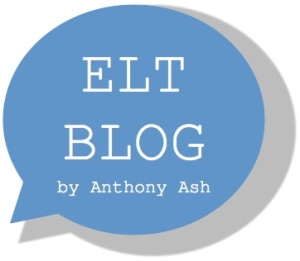This is a guest post written by Tetyana Skrypkina
In my teaching foreign languages practice I do use frequent dictations with my students. For it to be more successful, before the dictation I provide students with the list of unknown words and collocations, which might not be recognized by them due to the accent or speed of speech. Firstly, I give the list of unknown words, we read and translate (if necessary; and yes, I use the L1 for explanations), play the whole tape, then students are to write one chunk of meaningful speech after another, keeping the chunks in their mind. This helps strengthen their memory.
At first, this activity might be time consuming, but if you practice it regularly, each time you will need less and less time.
Here is a brief example of my German classes. I had a one-to-one Skype lessons with a student . The books we use have a CD with audio, each track is approximately 1 min 30 seconds long. In the beginning, it took us about 30 minutes to cope with one audio. But as we kept doing this activity, it took less and less time. Continue reading



